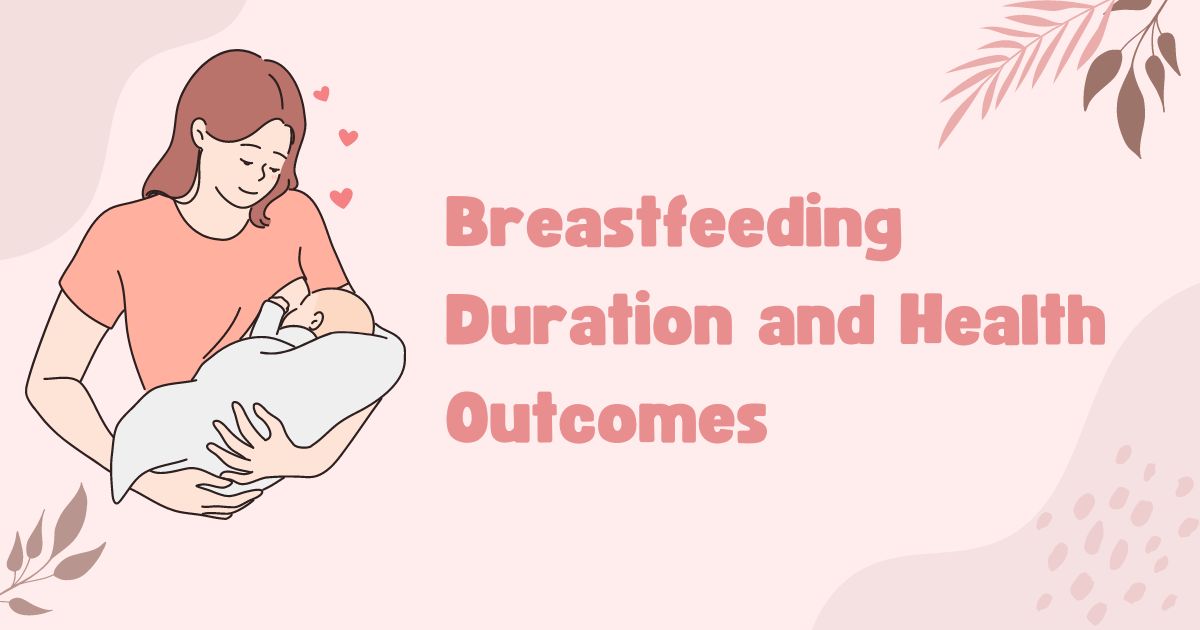Breastfeeding is a fundamental aspect of early childhood development and maternal well-being. The duration of breastfeeding is a topic that garners significant attention due to its far-reaching implications on health outcomes for both the baby and the mother. Understanding the nuances of breastfeeding duration can empower parents to make informed decisions that benefit their children’s health and their own.
Breastfeeding, a natural process, is often considered the first act of communication between a mother and her newborn. This intimate exchange provides more than just nutrition; it offers warmth, comfort, and a sense of security to the infant. The World Health Organization (WHO) and the Centers for Disease Control and Prevention (CDC) advocate for exclusive breastfeeding for the first six months of life, followed by continued breastfeeding along with appropriate complementary foods for up to two years or beyond.
The Significance of Breastfeeding Duration
The length of time a mother breastfeeds her child can significantly influence the child’s health outcomes. Extensive research underscores the myriad benefits of extended breastfeeding, ranging from bolstered immune systems in infants to reduced risk of chronic conditions later in life. For mothers, sustained breastfeeding is linked to lower risks of breast and ovarian cancers, type 2 diabetes, and postpartum depression.
However, breastfeeding duration varies widely among mothers due to a multitude of factors, including personal choice, societal norms, health considerations, and workplace policies. Despite the known benefits, many mothers wean their infants earlier than recommended due to various challenges such as societal pressure, lack of support, or misinformation.
Optimizing Breastfeeding Duration Practices
To optimize the health benefits, it’s crucial for mothers to understand and implement best practices in breastfeeding. This includes initiating breastfeeding within the first hour of birth, ensuring proper latch and positioning, and recognizing the infant’s hunger cues. Education and support from healthcare providers, lactation consultants, and breastfeeding support groups can significantly enhance a mother’s ability to breastfeed successfully for the recommended duration.
Breastfeeding is not just a mother’s responsibility. It requires a supportive environment, inclusive of family support, workplace accommodations, and public acceptance. Policies like the PUMP Act, which mandates reasonable break times for nursing mothers to express milk, exemplify the societal support necessary to extend breastfeeding duration.
Transitioning Beyond Exclusive Breastfeeding
As infants grow, their nutritional needs evolve. Introducing complementary foods while continuing breastfeeding can ensure they receive all necessary nutrients. The transition should be gradual and responsive to the infant’s readiness. Continued breastfeeding during this transition phase provides ongoing benefits, reinforcing the infant’s immune system and supporting emotional development.
Addressing Common Challenges
Despite the best intentions, mothers may face challenges that impact the duration of breastfeeding. These can range from physical issues, such as pain or low milk supply, to emotional hurdles like anxiety or societal judgment. Access to accurate information and professional support is vital in overcoming these challenges and sustaining breastfeeding.
For those seeking professional lactation support, the International Lactation Consultant Association offers resources and connections to certified lactation consultants. Engaging with such professionals can provide mothers with the guidance and reassurance needed to navigate the complexities of breastfeeding.
Health Benefits Linked to Extended Breastfeeding
- For Infants:
- Enhanced immune system defenses, reducing the risk of infections and certain chronic diseases.
- Improved nutritional outcomes, as breast milk evolves to meet the growing child’s needs.
- Strengthened mother-child bonding, supporting emotional and psychological development.
- For Mothers:
- Lowered risk of certain cancers, including breast and ovarian cancer.
- Reduced likelihood of developing type 2 diabetes and cardiovascular diseases.
- Accelerated postpartum weight loss and earlier return to pre-pregnancy weight.
Understanding these benefits can motivate mothers to embrace and continue breastfeeding, even when faced with challenges.
Tackling Misconceptions and Challenges
Breastfeeding duration often falls short of recommended guidelines due to prevalent myths and societal challenges. Addressing these misconceptions is key to empowering mothers to make informed choices about breastfeeding.
- Breastfeeding is Only Beneficial in the Early Months:
- Contrary to this common belief, extended breastfeeding continues to provide essential nutrients and immune support well beyond infancy.
- Returning to Work Means Ending Breastfeeding:
- Many working mothers successfully continue breastfeeding by using pumps and maintaining a feeding schedule that accommodates their work commitments.
- Only Infants Benefit from Breastfeeding:
- The health benefits of breastfeeding extend to mothers as well, offering long-term protection against various health conditions.
Frequently Asked Questions (FAQs)
- How long should a mother breastfeed to ensure optimal health benefits?
- The WHO recommends exclusive breastfeeding for the first six months and continued breastfeeding along with complementary foods up to two years or beyond.
- Can mothers of premature babies breastfeed for an extended duration?
- Yes, premature babies can greatly benefit from breast milk, and mothers can often produce milk longer with the right support and information.
- What should mothers do if they face difficulties with breastfeeding?
- Seeking support from lactation consultants, healthcare providers, or breastfeeding support groups can provide solutions and encouragement.
- Is there a point where breastfeeding no longer provides benefits?
- Breast milk adapts to the changing needs of the growing child, offering nutritional and immunological benefits as long as breastfeeding continues.
- How can working mothers manage breastfeeding?
- Planning, utilizing breast pumps, and accessing workplace lactation programs can help maintain breastfeeding while managing work responsibilities.
